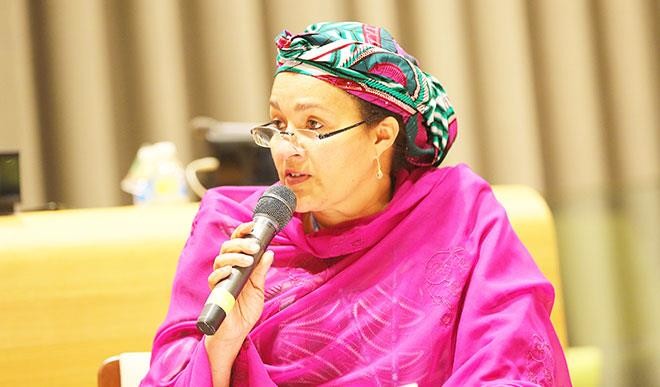2017 Budget: Environmental preservation scores high in ministry’s estimates
The Federal Ministry of Environment is to expend more than N2 billion for the preservation of the environment according to the 2017 appropriation bill currently before the National Assembly. Preservation of the environment got the highest share of N2, 802,827,634 as against almost N1,140,120,195 in the 2016 budgetary allocation of the Ministry of Environment. President […]


The Federal Ministry of Environment is to expend more than N2 billion for the preservation of the environment according to the 2017 appropriation bill currently before the National Assembly.
Preservation of the environment got the highest share of N2, 802,827,634 as against almost N1,140,120,195 in the 2016 budgetary allocation of the Ministry of Environment.
President Muhammadu Buhari presented the 2017 budget to the members of the National Assembly on December 14, 2016.
Down in the budget lines, the ministry will be spending N1,470,435,701 on erosion and flood control as against 2016 budget where the ministry expended N875,071,564. The ministry’s decision to allocate N1.4 billion to flood and erosion control may not be unconnected to the fact that flood has continued to wreak havoc in the last few years.
The ministry will also be spending N878.6 million on tree planting, an amount that triples the 2016 allocation for same purpose.
The ministry will be spending N102.2million on utilities, plant/fuel cost N25.7million, N40 million on electricity charges, N9.6 million on water rate, and N37.6 million in sewerage.
Meanwhile, the clean and green programme got an allocation of N134.8 million while Ogoni land cleanup programme support has an allocation of N164.8 million.
The allocation for the support of the Ogoni land cleanup may be connected to the statement by the former minister of environment, Amina Mohammed, that the federal government sees the need to put in place necessary structures to ensure the project outlived the current administration.
She also admonished that beyond the cleanup exercise which would last 25 years, it became imperative for the host communities to remain clean for the benefit of future generations.
